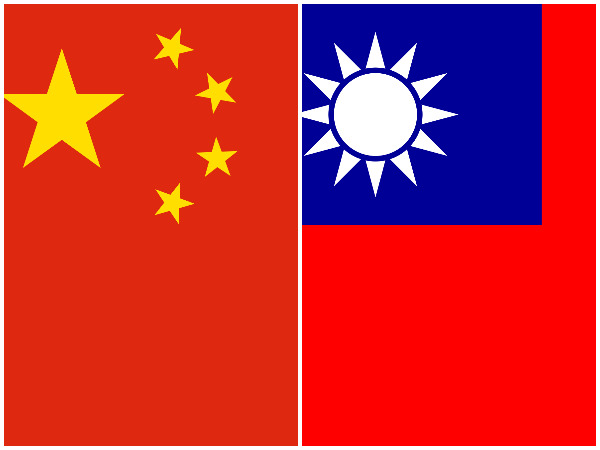Triggering 'panic' in Taiwan only part of China's larger plan: Report
The recent tense episodes between China and Taiwan are part of Beijing's 'big plan' to trigger panic in Taiwan, which has recently given mandate to Lai Ching-te, who is a staunch defender of Taiwanese identity, CNN reported.

- Country:
- China
The recent tense episodes between China and Taiwan are part of Beijing's 'big plan' to trigger panic in Taiwan, which has recently given mandate to Lai Ching-te, who is a staunch defender of Taiwanese identity, CNN reported. In a recent episode, King Xia, a Taiwanese tourist boat,carrying 23 passengers was navigating around Taiwan's Kinmen Islands when it was intercepted by two Chinese coast guard vessels near China's southeastern coast.
Six Chinese officers swooped on board and carried out a "forced" inspection that lasted about half an hour. They checked the vessel's route plan, certificates, and licenses of its 11 crew members, according to Taiwan's coast guard, which said King Xia had "veered toward" the Chinese side of the water to avoid shoals. The unprecedented encounter with Chinese law enforcement at a time of heightened tension between Beijing and Taipei startled Taiwanese passengers on board, CNN reported.
"It's super scary," a passenger told Taiwan's United Daily News upon returning to shore. "(I was) so afraid that I wouldn't be able to come back to Taiwan." Kuan Bi-ling, head of Taiwan's Ocean Affairs Council, said Tuesday the incident triggered "panic" among the Taiwanese public.
Notably, for years, sightseeing boat tours between Kinmen and Xiamen, the closest city on the Chinese mainland, have offered Taiwanese tourists a chance to gaze at China's dazzling skyline without the hassle of border checks. China also operates similar tour boats for its citizens. But the popular route has now been caught up in rising tensions as China's coast guard has ramped up patrols in the area. According to analysts, this is Beijing's latest effort to tilt the status quo in its favour by undermining Taiwan's control of the waters.
The escalation came after two Chinese fishermen drowned last week when their speedboat capsized during a pursuit by Taiwan's coast guard, who accused them of 'trespassing' into prohibited waters around Kinmen. China blamed Taiwan's ruling Democratic Progressive Party (DPP) for the deaths and seized on the opportunity to expand its presence in the waters.
Since the weekend, Beijing has denied Taipei's designation of "prohibited or restricted waters" near Kinmen, while its coast guard has launched "regular patrols" in waters around the islands to step up law enforcement, CNN reported. Ian Chong, a political scientist at the National University of Singapore, said the latest measures are part of China's "grey zone" tactics, referring to coercive or aggressive state actions that stop short of open warfare - something Beijing has used increasingly in recent years in the East and South China Seas, as well as toward Taiwan.
The inspection of a Taiwanese tour boat by China's coast guard was meant to provoke Taiwan and see if it would either escalate or accept this sort of behaviour as given. "(The Chinese coast guard) chose a tourist vessel because it's high profile - you would expect lots of people on the boat with cameras and phones," he said. "They are trying to erode and contest Taiwan's ability to administer those waters."
Taiwan's coast guard has said it will continue to enforce the law in waters it controls and "flexibly adjust its operations to ensure peace and security." Kuan, head of Taiwan's Ocean Affairs Council, said Taiwan authorities would "educate" Taiwanese boat captains that they don't need to stop for Chinese coast guard inspections.
"In such instances, they should immediately notify the council for assistance," she said. Meanwhile, the stakes are high, as the increased presence and closer proximity of Chinese and Taiwanese coast guard vessels raise the spectre of miscalculations that could potentially spiral into open conflict, according to CNN.
Speaking to reporters about the inspection by the Chinese coast guard, Taiwan's Defense Minister Chiu Kuo-kcheng highlighted such risks, saying the defence ministry is "very concerned" about potential miscalculations. He further said that Taiwan's military would not "proactively intervene" in the incident to avoid further escalating tensions.
Ever since DPP candidate Lai Ching-te won the Taiwanese presidential polls in a historic third consecutive term, Beijing has upped its ante to increase pressure on Taipei. Days after the election, Beijing poached one of Taipei's few remaining diplomatic allies, the Pacific Island nation of Nauru.
Last month, Taiwan also protested against China's "unilateral" adjustment of a flight path that could result in civilian aircraft flying closer to the sensitive Taiwan Strait median line, adding pressure on Taipei's aviation safety and aerial defence, CNN reported. The median line has long served as an informal demarcation between China and Taiwan, which Beijing claims as its own territory. China does not formally recognize the existence of such a line but has largely respected it until recent years.
Since former US House speaker Nancy Pelosi's visit to Taipei in 2022, Chinese military jets have regularly flown over the median line as Beijing ramps up military pressure on the self-ruled democracy. (ANI)
(This story has not been edited by Devdiscourse staff and is auto-generated from a syndicated feed.)
ALSO READ
Tensions Rise in Taiwan Strait Amid Chinese Drills
India Moves to Protect MSMEs with Anti-Dumping Duty on Chinese Imports
Tensions Rise as Taiwan Confronts the Threat of Chinese Blockade
Tensions Rise as Chinese Aircraft Carrier Passes Through Taiwan Strait
Chinese Aircraft Carrier Liaoning's Journey in the Taiwan Strait










